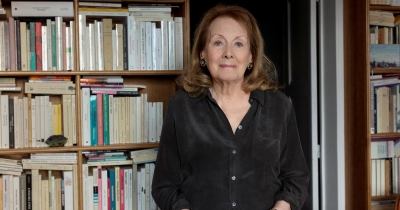
Using social and personal history, Annie Ernaux explores emotions such as shame, guilt, and grief, and blends them to create literary marvels. The French writer was recently awarded the 2022 Nobel Prize for Literature.
She is one of the greatest chronicler of our times, weaving the social and personal history seamlessly and offering a space for collective memories and histories in literature..
Intimate, reflective, and brutally honest, Annie Ernaux’s literary works are like personal histories as well as a collective history of her times.
The 82-year-old French writer explores emotions such as shame, guilt, and grief unabashedly. Ernaux has been writing for the past 50 years. Through her writings, she shares the collective experiences and memories of her generation. She has been awarded the Nobel prize for Literature recently.
Moving away from its tradition of awarding the prestigious Nobel prize in literature to novelists, playwrights and poets, this time, the Swedish Academy has chosen to acknowledge a writer of non-fiction, something the Academy has done only a few times. The merit of a memoirist has been acknowledged thus.
How it started
It all started in 1974 with ‘Cleaned Out’, Emmaus first book. It was a fictionalised documentation about a personal trauma she had to go through. Over the course of her writings, she has tried to draw on her life experiences, and those of others around her.
Early years
Born in 1940 in Lillebonne Normandy, Ernaux and her parents moved to Yvetot where they ran a cafe. Her painful encounter with the shame of her working-class background during that period would have a profound influence on her writing years later.
Ernaux as a teacher
Ernaux taught literature at secondary school for many years. Later, she retired from teaching and focussed on writing. The Years’ published in 2008 is an outstanding work which captures her life and times over a span of six decades. The English translation of this was shortlisted for the Man Booker Prize International.
Writings
In one of her interviews with the Guardian, she had said that for years she thought that through writing she could ‘avenge her whole people. few people in her family received formal education. Hence she strongly believed that she could highlight the social injustices through her writing.
Her bevy of literary works revolved around intimacy, social inequality, education as a change and so on. Her very personal experiences such as grieving, passion, classed shame, illness are also touched upon.
An ethnographer
She is often considered an ethnographer or sociologist, because her writings push the boundaries of literature, with the memoirs not just reflecting the self, but documenting the social realm from a neutral perspective as well.
Ernaux has published three autobiographical novels viz. ‘Cleaned Out’, ‘What they say Goes’, and ‘The Frozen Woman’. She has brought in a new narrative form in ‘life writing’.
For instance, in the auto-socio-biographical texts, she explores her life whilst documenting the social milieu. I remain in Darkness’ and ‘Getting Lost’ are diary extracts and in ‘Diaries of the Outside, she explores her interaction with others in public spaces such as the metro or supermarket.
In ‘Where I belong’ and ‘Return to Yvetot she has woven the narrative around the important places she came across in her life.
The feminist in her feels that the women’s revolution and the fight for equal rights are not over yet.
Picture Credit : Google




